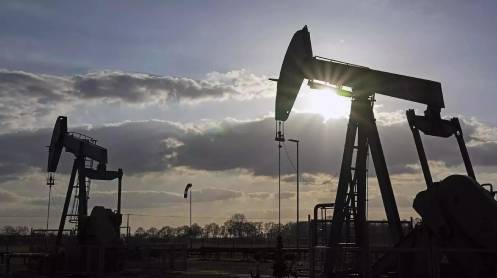The Khyber Pakhtunkhwa (K-P) government has voiced serious concerns over the forced reduction of domestic oil and gas production, blaming the ongoing influx of liquefied natural gas (LNG) from Qatar is causing significant revenue losses to the province in the form of diminished royalties and windfall levies, according to a news report.
Local exploration and production companies, including Oil and Gas Development Company Limited (OGDCL) and MOL, contribute royalties and levies that are now at risk due to reduced output from various KP hydrocarbon fields.
The issue has been raised with Prime Minister Shehbaz Sharif. During a recent meeting, the KP’s special assistant on energy highlighted that the forced reduction not only results in production losses but also threatens the integrity of gas reservoirs, amplifying long-term damage.
The gas supply restrictions have also intensified circular debt challenges faced by exploration companies, as Pakistan relies more heavily on costly LNG imports from Qatar. Meanwhile, power producers have hesitated to procure LNG as per commitments, complicating the situation for Pakistan State Oil (PSO), a primary LNG importer.
Amid falling indigenous production, Attock Refinery Limited (ARL) announced the shutdown of its main crude distillation unit until June 1, which has a capacity of 32,400 barrels per day, citing critically low crude stocks. ARL attributed the shutdown partly to high-pressure issues faced by Sui Northern Gas Pipelines Limited (SNGPL), which led to forced curtailment of gas from local fields and disruptions in oil and gas supply.
Industry sources criticised the previous Pakistan Muslim League-Nawaz (PML-N) government for signing the LNG purchase agreement with Qatar hastily, without an adequate assessment of Pakistan’s gas demand. This move has burdened the energy sector with rising circular debt.
The private sector’s efforts to import LNG have been hindered by bureaucratic and political obstacles, leading to missed opportunities and higher LNG prices that now challenge import feasibility. Pakistan’s two LNG terminals are underutilised, with one operating at partial capacity due to mismanagement.
The KP government has urged the establishment of a mechanism to prevent such forced curtailments in the future, emphasising mutual benefits for both the province and the federal government. Both federal and provincial authorities acknowledged the gravity of the situation, agreeing to resolve the matter through consultations with all relevant stakeholders.




